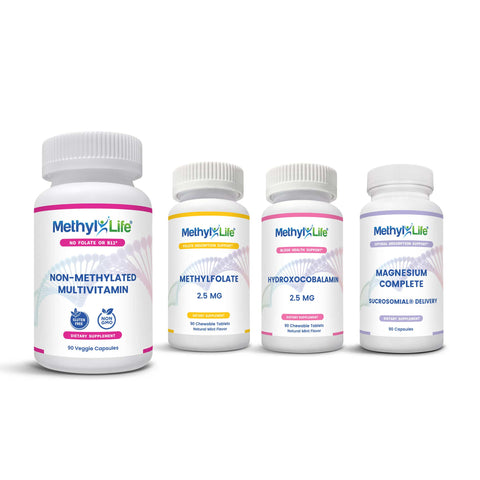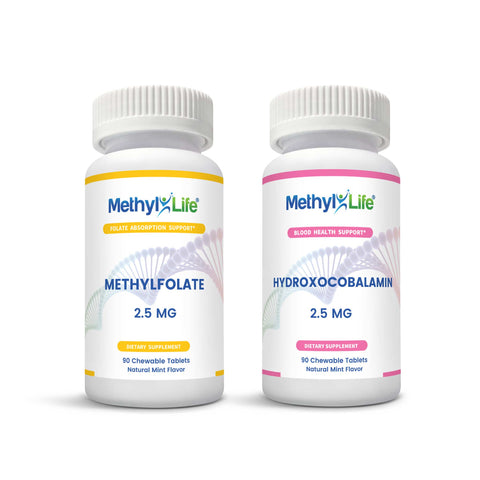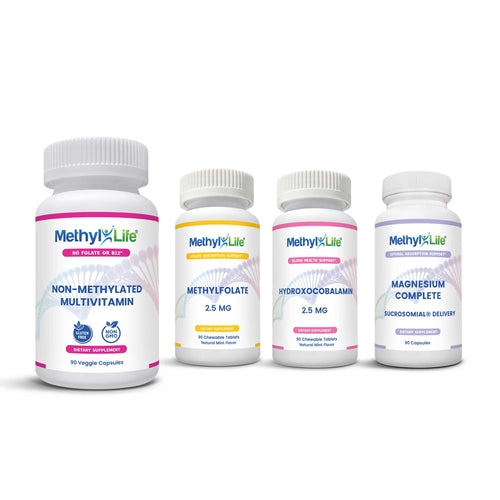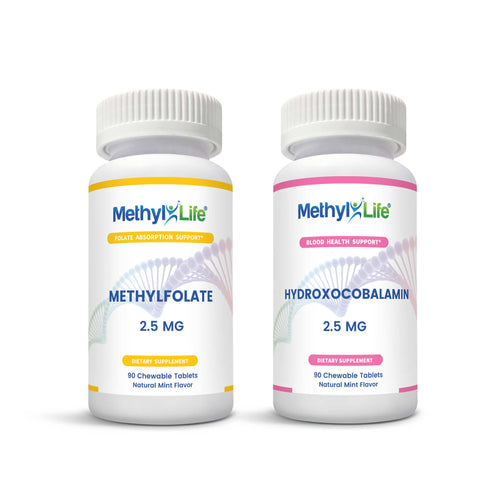The MTHFR gene mutation can cause a range of symptoms, depending on the type and severity of the mutation.
Those who are heterogeneous (one copy of the C677T or A1298C mutation) are less likely to have severe symptoms because their MTHFR enzyme still functions at around 65%. Those who are homozygous for the C677T mutation have only 30% of normal enzyme function, which means they are more likely to experience symptoms.1
Knowing how to recognize the symptoms can help you to understand whether you are affected, and what kind of treatment to seek.










